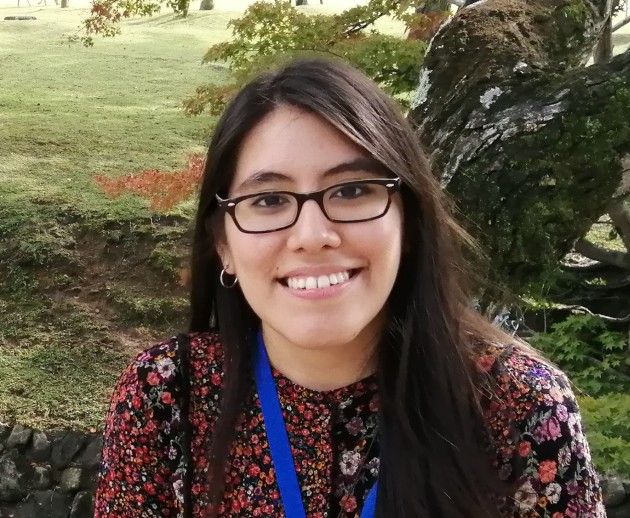
These engineer profiles are part of an earlier project, and some of our staff and students featured may have now left Imperial.
Kenny Malpartida-Cardenas is a PhD student in the Centre for Bio-Inspired Technology. Her research is helping advance the rapid diagnosis of infectious diseases through the design of novel molecular methods compatible with Lab-on-Chip systems.
“I studied Biomedical Engineering in Madrid, Spain. I was very interested in both medical sciences and engineering, so this degree was the perfect choice bringing together both worlds.”
Biomedical engineering is the application of the principles and problem-solving techniques of engineering to biology and medicine.
Kenny’s PhD project focuses on the development of molecular methods for the rapid diagnostics of infectious diseases, compatible with point-of-care, lab-on-a-chip devices.
A lab-on-a-chip is a miniaturised device that integrates one or more lab tests on a single microchip such as DNA sequencing or biochemical detection.
“My main research relies on the design of molecular assays to detect the presence of pathogens which cause infections in humans; such as detecting the DNA of the parasite that causes malaria, or more recently the RNA of the virus that causes Covid-19. Combining these sensitive and specific molecular methods with a lab-on-chip platform, we have a powerful point-of-care test.”
Rapid results
Molecular methods such as loop-mediated isothermal amplification (LAMP) have the benefit of amplifying nucleic acids in a much faster way than PCR, but keeping the high sensitivity and specificity.
Lab-on-chip platforms such as the Lacewing diagnostic platform that has been developed in the group will translate the molecular assays from the lab to the field.
The Lacewing diagnostic platform uses microchip technology including thousands of cutting-edge electrochemical biosensors that can be paired with a smartphone application to rapidly identify whether a person is positive for SARS-CoV-2 RNA from a nasal or throat swab.
The low-cost tests aim to provide a portable alternative to conventional lab-based testing, allowing patients to be diagnosed in the community in real time, with geo-tagging to enable real-time identification of infected patients and epidemiological surveillance to combat further outbreaks.
“I am very happy to be part of the team working on Covid-19 testing and we expect that this hard work can help in the fight against the spread of the SARS-CoV-2 virus. This test could be a game-changer for rapid, specific and sensitive diagnostics, becoming accessible at the front-line and more affordable than bulky instruments which are limited to centralised laboratories and hospitals. Now, diagnostics are more critical than ever.”
Workshops where engineers could tell their story could be really inspiring for younger audiences. Something like “Engineering unplugged” — a good analogy to an acoustic concerts which help the audience feel closer."
Support and inspiration
Kenny was the first in her family to attend university. “Being a first-generation university student was challenging and I will always be grateful to my parents for their continuous support. Getting a microscope as a Christmas present was key to inspiring me to discover beyond what you can see.”
"In order to widen participation in engineering I think organising workshops where engineers could tell their story could be really inspiring for younger audiences. Something like “Engineering unplugged” — a good analogy to an acoustic concerts which help the audience feel closer."
As a PhD student Kenny has had the opportunity to travel to places which she otherwise would not have visited. “I was lucky to have the chance to attend conferences abroad during my PhD and discover different cultures, cuisines and meet very interesting people — in particular, my trip to Ghana.”